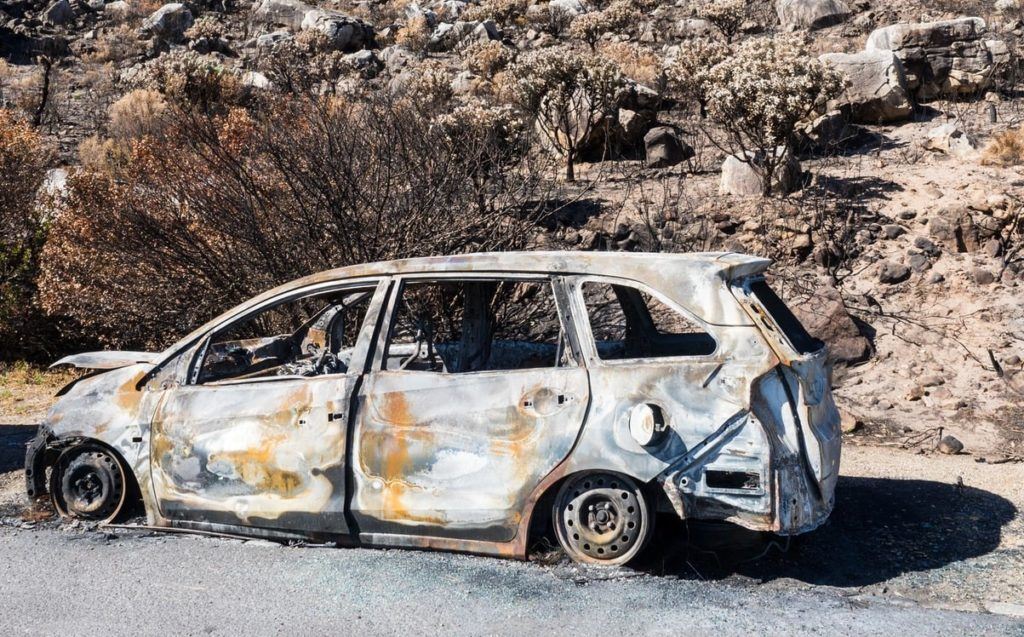
When you are in a vehicle accident, your health and wellbeing tend to take the forefront of your concerns – which is completely understandable. When you have gotten through the initial shock of the accident and injuries you may have suffered, you are left with the unfortunate reality that you also have property damage to deal with.
Luckily, property damage is a lot more straightforward to deal with than personal injury, as there is little to no interpretation. This of course is different with each case and depends on the value of the vehicle, but for the most part, the insurance company will compensate you for the full value that you deserve.
How do you start the process?
The first step is to take pictures.
At this point, it is recommended to reach out to an attorney before going any further. Some insurance companies even may require a recorded statement, and contacting a personal injury lawyer first can help you avoid issues later down the road.
If you decide to handle the property damage yourself contact your insurance first and see if your policy includes collision coverage. This tends to help the claim process faster. If you do not have collision coverage you will have to reach out to the at-fault insurance. They will send a representative or ask you to visit a facility for evaluation.
After they have gone through their evaluation process, the insurance company will offer an amount. Usually, these amounts are fair, but if you are concerned you can always contact your attorney.
So what is a total loss?
A total loss is defined as a vehicle with damage that requires more money to repair than it is worth. If your vehicle is totaled, you can work with your insurance company to get compensation in the amount of the cash value of that car, minus any deductible costs (if using your insurance). The deductible at the end of the case.
The insurance company will then take possession of your vehicle and give you the compensation. It is possible to keep your vehicle if you choose, but it must reach certain safety standards.
What is diminished value?
Diminished value is the loss in value of a vehicle from being in an accident, even after repairs have been done. Even after a “good as new” repair job, a lower resell value for a car results from a damage history. It is possible to get compensation for diminished value through an insurance claim. Each state has different regulations for handling diminished value. This is an area where your attorney can help maximize your claim.
What if I need transportation?
During the time that your vehicle is being repaired, if your car was totaled, or while you search for a new car, you may not have access to another vehicle. In this case, you can reach out to your insurance or the at-fault insurance to determine if vehicle rental is covered. If not, this will generally cost you something, but these costs can be added to your accident case and can be claimed for reimbursement from the insurance company when the case settles. There may also be shuttle services or other services that your insurance company can provide that make more sense for your situation.
Can gap insurance benefit me?
GAP insurance is insurance that protects you if you are currently paying off a vehicle. If your vehicle cost $15,000.00 initially and was totaled in an accident, the vehicle’s value has likely dropped significantly. If the market price for that same vehicle is only $7,000.00 after the accident, you could be stuck with a majority of the payments, but only compensated for half of the purchase value. GAP insurance is extremely useful in these situations, as it protects you from having to pay the remaining balance on the car loan. SO using the above example, without GAP insurance you would have to pay the remaining $8000.00 on the vehicle loan after the $7000.00 reimbursement. WITH GAP insurance, you would ONLY have to pay the current value of the car as full payment for the loan.
GAP is an extremely valuable option but is only necessary if you have a large portion of your loan still unpaid. If you only have a couple hundred, or even 1-2 thousand left on the loan, it may be better to forego GAP insurance as it will not end up benefiting you in the long run.
We at Fry | Goehring try to make all of this information as easy, stress-free, and simple as possible for our clients. We can help you through these processes and make sure you understand all of the steps that the insurance company is going through. If you have any questions, please feel free to contact us at (404) 969-1284.




